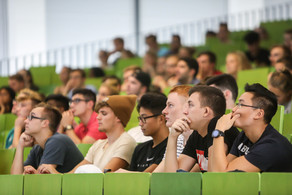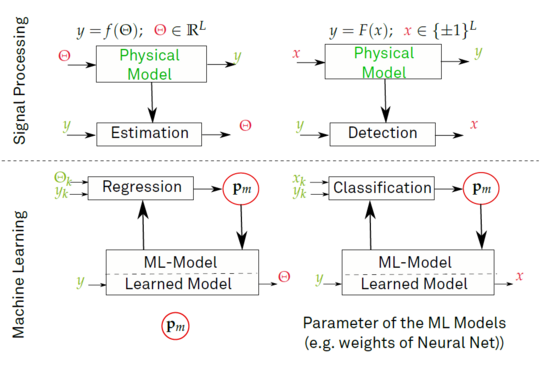Research
The Information Processing Lab (IPL) deals with the analysis and implementation of signal processing systems in different fields of application (biomedical systems, electronic circuits, radio systems, energy transmission systems). Here, methods of signal processing (SP) and machine learning (ML) are considered and compared in order to determine which methods of SP and ML are used or combined for the respective task.
The systems are represented by physical models and the physical parameters to be estimated or detected are obtained by inverting the model (see upper part of figure). The corresponding methods are parameter estimation and detection methods of SP, e.g. frequency, position and channel estimation, channel equalization, data detection.
On the other hand, the systems are represented by machine learning models, as e.g. neural network, decision tree, support vector machine, ... (see lower part of figure). First, the parameters of the ML model must be learned using training data. This "learned model" then reflects the inverse physical model and can be used to determine the parameters of the physical model. Here the corresponding methods are referred to as regression and classification.
In both cases, the mathematical methods used to determine the parameters are the same: least squares, principal component analysis , gradient descent , subspace methods , … . However, these methods are applied in different settings and it needs to be examined carefully
- When is which approach useful and target-oriented (SP and/or ML)?
- Are physical models available or can the (statistical) models only be generated by data exploration?
- How can the ML model be explained with the help of a physical model or does it make sense to replace physical models with ML models?
These questions are considered in different projects:
- Biomedical SP and ML (SmartHospital.NRW)
- Signal integrity on electrical circuits (progressiveKI)
- Explainable AI models for on-board networks (KI4BoardNet)






